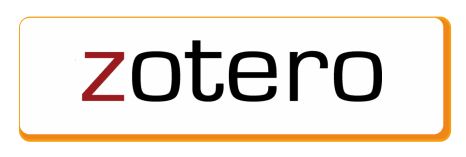MENDONGENG: KEGIATAN KLASIK UNTUK KESIAPAN SEKOLAH SISWA TAMAN KANAK-KANAK
 Abstract views: 293
,
Abstract views: 293
,
 PDF downloads: 208
PDF downloads: 208
Abstract
Tujuan dari penelitian ini adalah: (1) menguji efektifitas mendongeng terhadap kesiapan sekolah anak dan (2) membantu anak mengembangkan keterampilan-keterampilan kesiapan sekolah yang dibutuhkan untuk melakukan penyesuaian diri akademik dan sosial di Sekolah Dasar. Metode dan desain yang digunakan adalah Quasy-Experimental Posttest-Only Design. Cluster sampling merupakan teknik sampling yang digunakan dalam menentukan sampel dari populasi geografis yang ada di Kabupaten Sumenep wilayah daratan. Data dikumpulkan melalui Bender Gestalt Test dan juga dianalisa melalui sistem scoring dan interpretasi Bender Gestalt untuk mengetahui perbedaan usia mental siswa sebelum dan setelah pemberian treatment. Temuan penelitian adalah bahwa kelompok eksperimen memiliki age equivalent yang lebih tinggi dan menunjukkan kesiapan sekolah yang lebih cepat setelah mendapatkan treatment dibandingkan kelompok kontrol. Dan keterampilan-keterampilan sekolah baik akademik dan sosial juga dapat dikembangkan melalui mendongeng.
Downloads
References
Agosto, D. E. (2013). If I had three wishes: The aducational and social/ emotional benefits of oral storytelling. Storytelling, Self, Society, 9(1), 53-76.
Berhenke, Amanda, et.all. (2011). Observed emotional and behavioral indicators of motivation predict school readiness in head start graduates. Early Childhood Research Quarterly, 26(4), 430-441.
Callaghan, G., Madelaine, A., & others. (2012). Levelling the playing field for kindergarten entry: Research implications for preschool early literacy instruction. Australasian Journal of Early Childhood, 37(1), 13.
Creswell, J.W. (2012). Educational research: planning, conducting, and evaluating quantitative and qualitative research. Boston: Pearson Education.
Curenton, S.M., & Craig, M.J. (2011). Shared-reading versus oral storytelling: Associations with preschoolers’ procosial skills and problem behaviours. Early Child Development and Care, 181(1), 123-146.
Dice, L., & Schwanenflugel, P. A. (2012). Structural model of the effects of preschool attention on kindergarten literacy. Reading and Writing, 25(1), 2205-2222.
Eisenberg, N., Valiente, C., & Eggum, N. D. (2010). Self-regulation and school readiness. Early Education and Development, 21(5), 681–698.
Elizabeth, G. (2010). Reimagining Kindergarten. Education Digest: Essential Readings Condensed for Quick Review, 75(7), 28-34.
Fekonja-Peklaj, U., Marjanovič-Umek, L., & Kranjc, S. (2010). Children’s storytelling: The effect of preschool and family environment. European Early Childhood Education Research Journal, 18(1), 55–73.
Forry, N. D., Davis, E. E., & Welti, K. (2013). Ready or not: Associations between participation in subsidized child care arrangements, pre-kindergarten, and head start and children’s school readiness. Early Childhood Research Quarterly, 28(3), 634–644.
Jones, S. M., Brown, J. L., & Lawrence Aber, J. (2011). Two-year impacts of a universal school-based social-emotional and literacy intervention: An experiment in translational developmental research. Child Development, 82(2), 533–554.
Korat, O. (2009). Reading electronic books as a support for vocabulary, story comprehension and word reading in kindergarten and first grade. Computer and Education, 55(1), 24-31.
Liew, J. (2011). Effortful control, executive function, and education: Bringing self-regulatory and social-emotional competencies to the table. Child Development Perspectives, 6(2), 05-111.
Linder, S. M., Ramey, M. D., & Zambak, S. (2013). Predictors of school readiness in literacy and mathematics: A Selective review of the literature. Early Childhood Research & Practice, 15(1), n1.
Loizou, E., Kyriakides, E., & Hadjicharalambous, M. (2011). Constructing stories in kindergarten: Children’s knowledge of genre. European Early Childhood Education Research Journal, 19(1), 63-77.
McWayne, C. M., Hahs-Vaughn, D. L., Cheung, K., & Wright, L. E. G. (2012). National profiles of school readiness skills for head start children: An investigation of stability and change. Early Childhood Research Quarterly, 27(4), 668–683.
Moody, A. K., Justice, L. M., & Cabell, S. Q. (2010). Electronic versus traditional storybooks: Relative influence on preschool children’s engagement and communication. Journal of Early Childhood Literacy, 10(3), 294–313.
Purpura, D. J., Hume, L. E., Sims, D. M., & Lonigan, C. J. (2011). Early literacy and early numeracy: The value of including early literacy skills in the prediction of numeracy development. Journal of Experimental Child Psychology, 110(4), 647–658.
Ronald, L. (2013). School Readiness Begins in Infancy; Social interactions during the first two years of life provide the foundation for learning. Phi Delta Kappan, 92(3), 17-25.
Stevens, R. J., Meter, P. V., & Warcholak, N. D. (2010). The effects of explicitly teaching story structure to primary grade children. Journal of Literacy Research, 42(2), 159–198.
Weiland, C., & Yoshikawa, H. (2013). Impacts of a prekindergarten program on children’s mathematics, language, literacy, executive function, and emotional skills. Child Development, 84(6), 2112-2130.
Wright, C., Diener, M.L., & Kemp, J.L. (2013). Storytelling dramas as a community building activity in an early childhood classroom. Early Childhood Education Journal, 41(3), 197-210.
Ziv, Y. (2013). Social information processing patterns, social skills, and school readiness in preschool children. Journal of Experimental Child Psychology, 114(2), 306–320.
The journal operates an Open Access policy under a Creative Commons Non-Commercial 4.0 International license. Authors who publish with this journal agree to the following terms:
- Authors retain copyright and grant the journal right of first publication with the work simultaneously licensed under a
 Commons Attribution-NonCommercial 4.0 International License
Commons Attribution-NonCommercial 4.0 International Licensethat allows others to share — copy and redistribute the material in any medium or format, and adapt — remix, transform, and build upon the material.
- Authors are able to enter into separate, additional contractual arrangements for the non-exclusive distribution of the journal's published version of the work (e.g., post it to an institutional repository or publish it in a book), with an acknowledgement of its initial publication in this journal.
- Authors are permitted and encouraged to post their work online (e.g., in institutional repositories or on their website) prior to and during the submission process, as it can lead to productive exchanges, as well as earlier and greater citation of published work (see The Effect of Open Access).




















